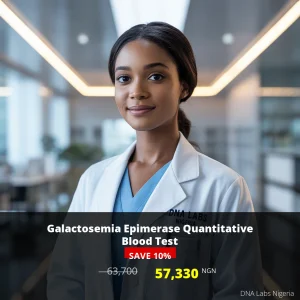Osmr Gene Amyloidosis Primary Localized Cutaneous Type 1 NGS Genetic DNA Test
Introduction
The Osmr Gene Amyloidosis Primary Localized Cutaneous Type 1 NGS Genetic DNA Test is a groundbreaking diagnostic tool that helps identify genetic mutations associated with amyloidosis. This test is crucial for patients who may be at risk of developing this rare condition, allowing for early detection and management.
What the Test Measures
This test specifically detects mutations in the OSMR gene, which are linked to localized cutaneous amyloidosis. Utilizing Next-Generation Sequencing (NGS) technology, the test offers a comprehensive analysis of the genetic material to provide accurate results.
Who Should Consider This Test
Individuals who have a family history of amyloidosis, particularly those with symptoms such as skin lesions or localized swelling, should consider this test. Risk factors include:
- Family history of OSMR gene mutations
- Presence of skin lesions or other related symptoms
- Individuals with a known diagnosis of amyloidosis
Benefits of Taking the Test
Taking the Osmr Gene Amyloidosis test provides numerous benefits, including:
- Early detection of potential genetic conditions
- Informed decision-making regarding treatment options
- Understanding familial risk and implications for family members
- Access to specialized care and management strategies
Understanding Your Results
Results from the Osmr Gene Amyloidosis test will be provided with a detailed report. It is important to discuss these results with a healthcare provider, who can offer guidance on next steps and potential treatment options based on the findings.
Test Pricing
| Discount Price | Regular Price |
|---|---|
| 400,000 NGN | 560,000 NGN |
How to Book the Test
To take this essential step towards your health, book the Osmr Gene Amyloidosis Primary Localized Cutaneous Type 1 NGS Genetic DNA Test today. For inquiries or to schedule your test, please call or WhatsApp us at +2348110567037.
Additional Information
Turnaround time for results is approximately 3 to 4 weeks. The test requires a sample type of either blood, extracted DNA, or one drop of blood on an FTA card. It is recommended to have a genetic counseling session prior to testing to discuss clinical history and draw a pedigree chart of affected family members.







